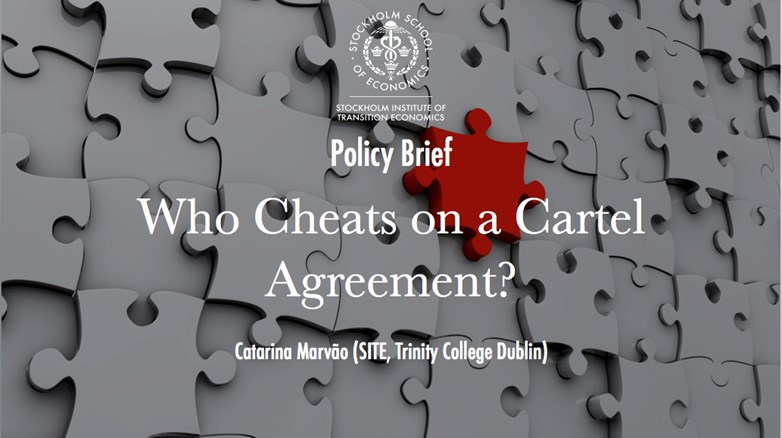Who Cheats on a Cartel Agreement?
Leniency policies, widely used by antitrust authorities, aim to deter and dissolve cartels by granting a fine reduction (up to immunity) to reporting cartel members. The aim of the research by Catarina Marvão is to understand the specific characteristics of reporting cartel members and of the cartels in which they take part. These research results are discussed in the latest policy brief written by Catarina Marvão.
In the policy brief, the author shows that the first reporting firm in a cartel tends to be the cartel leader (in the US) or a repeat offender (in the EU). Reporting is also shown to be more likely in cartels which affect a larger market (in the US) and in cartels which have a lower number of members but which affect a geographical area wider than the EEA (in the EU).
In the policy brief, Catarina Marvão also describes cartel leaders, repeat offenders and analyses the leniency policies. Read more about the theoretical model that provides specific characteristics of reporting cartel members and the empirical evidence that supports the model in the policy brief "Who Cheats on a Cartel Agreement?" on the Forum for Research on Eastern Europe and Emerging Economies or view research papers of Catarina Marvão here.




